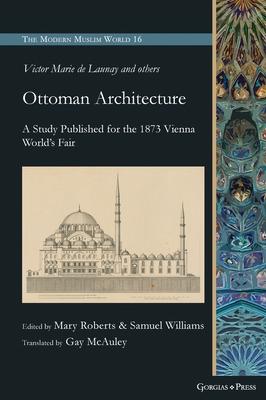Ottoman Architecture is the first modern history of this architectural tradition commissioned by the Ottoman state, yet it is little known outside the field of late Ottoman studies. Produced for the Vienna World's Fair in 1873, this magnificently illustrated volume endeavoured to define what was distinctive about Ottoman culture and codifies the empire's 600-year architectural history into a series of developmental stages, emphasising the efflorescence of the Ottoman classical tradition during the sixteenth century. Composed at a formative moment when the Ottoman Empire was striving to conceive of its modernity in relation to other empires in Europe and Asia, the authors carefully position this imperial architectural legacy in relation to other modernising projects in the late Ottoman Empire. This new translation is accompanied by a scholarly introduction that contextualises its visual and historiographic significance.

Ottoman Architecture: A Study Published for the 1873 Vienna World's Fair
Ottoman Architecture is the first modern history of this architectural tradition commissioned by the Ottoman state, yet it is little known outside the field of late Ottoman studies. Produced for the Vienna World's Fair in 1873, this magnificently illustrated volume endeavoured to define what was distinctive about Ottoman culture and codifies the empire's 600-year architectural history into a series of developmental stages, emphasising the efflorescence of the Ottoman classical tradition during the sixteenth century. Composed at a formative moment when the Ottoman Empire was striving to conceive of its modernity in relation to other empires in Europe and Asia, the authors carefully position this imperial architectural legacy in relation to other modernising projects in the late Ottoman Empire. This new translation is accompanied by a scholarly introduction that contextualises its visual and historiographic significance.